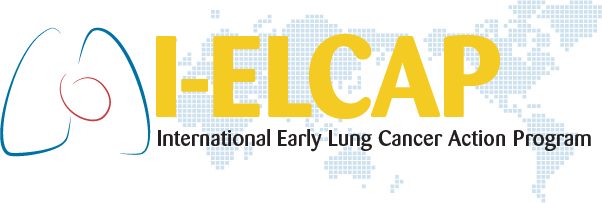Previous Meetings
The 3rd International Conference on Screening for Lung Cancer
Friday, October 27, 2000 to Sunday, October 29, 2000
Weill Medical College of Cornell University
New York, NY
United States
Mission:
The mission of the conference is to update interim developments relevant to lung cancer screening and to seek consensus on current issues surrounding screening for lung cancer. We plan to have presentations related to these topics on Friday, October 27. On Saturday, October 28, we will have workshops, the results of the workshops will be presented on Sunday, October 29.
Consensus Statement:
Since the first Conference one year ago, new research initiatives have been launched in New York City and State, at the US National Cancer Institute, in Japan, and in Europe; and in addition, increased practice of screening is taking place in medical centers in the United States, Japan and Europe and in select companies. Continued research indeed is needed to determine the performance of the presumably optimal regimen for lung cancer in a timely fashion when this regimen still remains relevant. The specification of the regimen is critical as assessment of the quantitative benefit of lung cancer screening is at issue, and in fact, the overarching purpose of these conferences is to capture the intellectual underpinnings, cross current and challenges in this regard and to achieve consensus on critical issues. Accordingly, the Conference provided for an updating of the indications for screening, screening tests, definitive diagnostics, and screening-associated interventions. Relevant conferences, publications, pre-publications, research initiatives since the previous Conference were presented.
A felt urgency for timely quantification of the benefit from CT screening was widely manifest. This urgency was also expressed by the representatives of the health-care insurance sector and the American Cancer Society. The two alternative outlooks on such policy-relevant research were again discussed, as in the previous Conferences: 1. The concept of screening as early diagnosis, leading to a quantitative assessment of all of the parameters directly relevant to practice, and accomplished as a by-product of practice; 2. The concept of screening as an intervention aimed at ‘mortality reduction,’ leading to the use of randomized controlled trials to answer the qualitative question of whether reduction in cause-specific ‘mortality’ is achieved.
There was agreement that people at high-risk of lung cancer should be made aware of the both the benefits and the risks associated with CT screening for early-diagnosis of lung cancer, and that they should have access to state-of-the-art screening and appropriate follow-up. Referral to the primary care physician was preferred, but it was felt that lack of such referral should not be a barrier to obtaining screening. Specialty societies should develop professional standards related to specialty-specific responsibilities and collaborative roles in the early diagnosis and treatment of lung cancer in order to insure state-of-the-art care. Updating of the American Cancer Society guidelines was encouraged, as was the development of an accreditation program by radiologic societies.
The participants continued to feel, as already stated in the previous Conferences, that an international consortium was highly desirable for pooling of data for rapid accumulation of the policy-relevant information needed about screening for lung cancer, its cost-effectiveness as well as the impact of alternative downstream clinical management approaches. Its mission in its broadest sense would be dual: 1. advancement of policy-relevant research on early diagnosis of lung cancer with emphasis on collaboration among research groups and pooling of research data, and 2) fostering translation of up-to-date evidence into guidelines for practice. This consortium should develop strong ties to all other interested organizations, and foster inclusive and productive collaborations and avoid splintering of the efforts on early diagnosis of lung cancer. It should have a head and an executive committee. Discussions initiated in the mini-conference in Japan in September on ‘ground-glass’ opacities, detected on screening CT continued as to their definition, work-up, diagnosis, and treatment, as these are new questions already being faced in the practice of CT screening for lung cancer.
